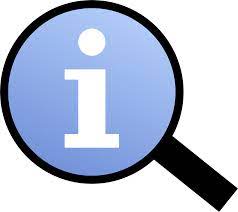The Power of Information
Information is a valuable commodity that shapes our understanding of the world around us. In today’s digital age, we are inundated with data from various sources, ranging from news outlets to social media platforms. The ability to access and process information effectively can have a profound impact on our lives.
One of the key benefits of information is its role in decision-making. Whether it’s choosing a new car, planning a holiday, or making important life choices, having access to accurate and relevant information can help us make informed decisions that align with our goals and values.
Furthermore, information serves as a tool for learning and personal growth. Through books, online resources, and educational institutions, we can expand our knowledge on virtually any topic of interest. Information empowers us to develop new skills, explore different perspectives, and stay abreast of the latest developments in our fields.
From a societal perspective, information plays a crucial role in fostering transparency and accountability. Access to accurate information enables citizens to hold governments, corporations, and other entities accountable for their actions. In this way, information serves as a cornerstone of democracy and good governance.
However, the abundance of information in the digital age also poses challenges. With misinformation and fake news prevalent online, it’s essential to cultivate critical thinking skills to discern fact from fiction. By evaluating sources critically and verifying information before accepting it as truth, we can navigate the vast sea of data with confidence.
In conclusion, information is a powerful tool that shapes our decisions, fuels our learning journey, and holds institutions accountable. By harnessing the power of information responsibly and thoughtfully, we can empower ourselves and contribute positively to our communities.
Essential Insights: Understanding, Accessing, and Validating Information in the Digital Age
- What is information?
- How can I access information?
- Why is information important?
- What are the different types of information?
- How can I verify the accuracy of information?
- Where can I find reliable sources of information?
What is information?
Information can be defined as data that has been processed, organised, or structured in a meaningful way to convey knowledge or insights. It encompasses facts, details, and statistics that serve a purpose of informing, instructing, or enlightening individuals. Information is essential for decision-making, problem-solving, and communication in various contexts, from academic research to everyday interactions. It can exist in different forms, such as written text, images, audio recordings, or digital data, and plays a fundamental role in shaping our understanding of the world around us.
How can I access information?
Accessing information in today’s digital age has never been easier. There are numerous avenues available to individuals seeking information on a wide range of topics. One common method is through the internet, where a vast array of websites, online databases, and search engines provide instant access to a wealth of information. Libraries also remain valuable resources, offering physical and digital collections that cover diverse subjects. Additionally, seeking guidance from experts in specific fields, attending workshops or seminars, and engaging with educational materials can further enhance one’s access to valuable information. By utilising these various channels effectively, individuals can navigate the sea of information with ease and empower themselves with knowledge that enriches their lives.
Why is information important?
Information is crucial for a multitude of reasons, serving as the foundation upon which decisions are made, knowledge is acquired, and societies function. It provides individuals with the necessary insights to make informed choices, whether in personal matters or professional settings. Access to accurate information empowers individuals to learn, grow, and adapt in a rapidly changing world. Furthermore, information promotes transparency and accountability, enabling individuals to hold institutions and authorities responsible for their actions. In essence, information is the lifeblood of progress, enabling us to navigate complexities, expand our horizons, and make meaningful contributions to society.
What are the different types of information?
Information can be categorised into various types based on its form, purpose, and context. Some common classifications of information include: 1. **Verbal Information**: conveyed through spoken or written words, such as conversations, speeches, or text documents. 2. **Visual Information**: presented through images, charts, graphs, or videos to enhance understanding and communication. 3. **Numerical Information**: data expressed in numbers and statistics for analysis and comparison. 4. **Tactile Information**: conveyed through touch, such as Braille for visually impaired individuals. 5. **Digital Information**: stored electronically in formats like emails, websites, databases, and multimedia files for easy access and retrieval. Each type of information serves a distinct purpose in conveying knowledge and facilitating communication in various contexts.
How can I verify the accuracy of information?
Verifying the accuracy of information is crucial in today’s digital age, where misinformation and fake news abound. To ensure the reliability of information, one can employ various strategies such as cross-referencing multiple sources, checking the credibility of the author or publication, and examining the date of publication to ensure relevance. Fact-checking websites and reputable sources can also aid in confirming the accuracy of information. By critically evaluating sources and corroborating information from reliable sources, individuals can navigate the vast landscape of data with confidence and make informed decisions based on verified facts.
Where can I find reliable sources of information?
When seeking reliable sources of information, it is essential to turn to reputable sources such as academic journals, government websites, and established news outlets. Academic journals are peer-reviewed publications that undergo rigorous scrutiny by experts in the field, ensuring the accuracy and credibility of the information presented. Government websites often provide official data and reports on various topics, offering a reliable source of information backed by authoritative sources. Established news outlets with a track record of journalistic integrity can also be trusted for up-to-date and well-researched information on current events and issues. By prioritising these sources over potentially biased or unverified sources, individuals can access accurate and trustworthy information to inform their decisions and understanding of the world around them.

